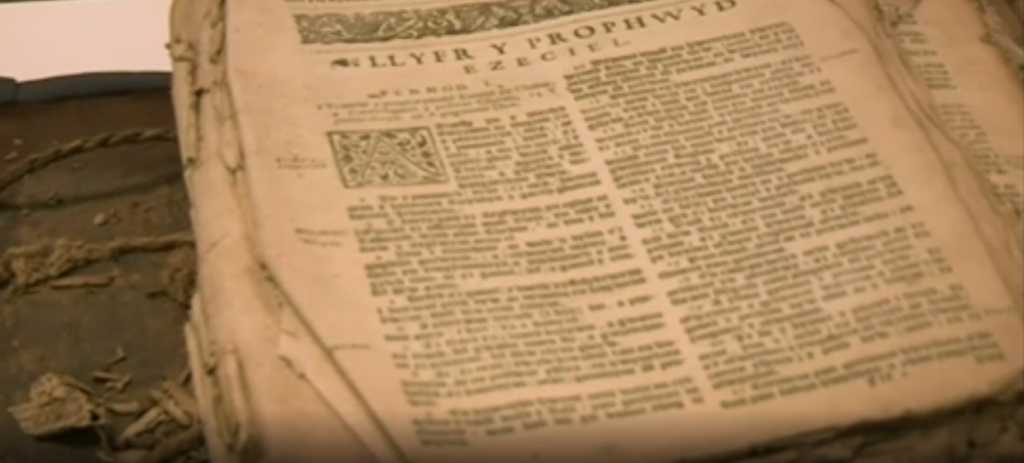The incredible story of a 400-year-old Bible is set to be told at the National Library of Wales after the sacred book was discovered hidden away in the back of a church.
The leather-bound 1620 Llanwnda Bible survived the invasion of Britain during the 1797 Battle Of Fishguard. During the fierce battle, the army of 1,400 French and Irish troops raided St Gwyndaf’s Church in the Welsh town of Llanwnda and used pages from the bible to start a fire.
The Llanwnda Bible was eventually discovered some 200 years later in the 1990s. “The story goes that the book was rediscovered at the back of the church in the 1990s and nobody realized what it was,” said the vicar of the church Sarah Geach, as reported by the Daily Mail.

“The parish made a cabinet but of course they were not able to store it under the right conditions and over a period of time it started to deteriorate..”
The precious text was handed over to specialists at the University of Wales’ Trinity St David’s in Lampeter, West Wales, two years ago. It was then placed in a room with a set temperature set of 15C and with humidity levels maintained at 60 percent in order to revitalize the papers.
The text is due to be moved to the National Library of Wales in the University town of Aberystwyth next month.
Retired lecturer Dr John Morgan-Guy explained why the discovery was so significant:
“What makes it unique is its association with the last invasion on British soil all those years ago. It did well to survive when you consider what it must have been through.
Expert analysis of the bible suggests these soldiers grabbed it by the hard cover and tore the bindings, which were made of wood and thick, strong string, from the paper with considerable force.”
Morgan-Guy explained how some of the scriptures had been used by the soldiers to keep warm in through the winter nights of battle.

“They then ripped handfuls of sheets from the bible and used them to start a fire outside so they could cook food and keep warm,” he added.
Oh, and due to the shortage of toilet paper in these harsh wartime conditions, it appears the men had one other purpose for the word of God:
“Alas, some of the sheets were used for more basic purposes by the soldiers…” the lecturer noted.
“Thankfully, a large part of the bible has survived and now we have to continue to conserve what we have. We do not want to restore it because its interest lies in what happened to it as much as what it is,” Morgan-Guy said, as reported by the BBC.
After a period of restoration and public display, the Bible will return to its rightful home of St Gwyndaf’s. There it will be visible to the public, encased in a temperature and humidity-controlled glass cabinet.
Morgan-Guy explained how its discovery effectively rescued the text from being completely destroyed by the elements.
“If it had been left at St Gwyndaf’s, it would only have disintegrated further, due to the elements,” he said.
“When it goes back to the church later this year, it will be kept inside a temperature and humidity-controlled glass cabinet and it will be on display for everyone once again for many centuries to come, I hope.”



